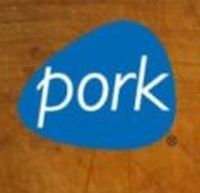A federal judge in Washington, D.C., has ordered a halt to annual payments from the National Pork Board to the National Pork Producers Council for trademarks including “The Other White Meat.”
The Humane Society of the United States, Iowa hog producer Harvey Dillenburg and Iowa Citizens for Community Improvement sued USDA in 2012, challenging a 2006 purchase agreement between the pork board, which runs the pork check-off program, and NPPC for four trademarks. Under the terms of the agreement, NPB agreed to pay $34.6 million, but financed it over 20 years, resulting in payments of $3 million annually for 20 years.
The lawsuit claimed the trademarks were overvalued and that NPPC was unlawfully using the money it received from NPB for lobbying purposes. In 2016, USDA re-approved the agreement based on an outside consultant’s review, which valued the trademarks at between $113 million and $132 million.
But U.S. District Judge Amy Berman Jackson ruled that the review by financial advisory firm Stout Risius Ross did not adequately analyze the value of the trademarks, in particular the one that is currently used, a pork loin silhouette with the word “pork” on it. That trademark and a new campaign (“Pork: Be Inspired”) replaced The Other White Meat in 2011.
Jackson also said USDA’s review of the payments were flawed.
“First, the agency states that it undertook to ascertain ‘the current value of the Pork trademarks,’ ” Jackson wrote. “But the valuation it adopted to justify future payments is based on the cost of replacing a campaign that is no longer in use and that the agency has already paid to replace. So it is not clear how that calculation sheds light on the value of the three obsolete Other White Meat trademarks to the agency today, and it is not clear why the agency would predicate future payments based on replacement costs that have already been incurred.”
“The fundamental problem is that the three trademarks that include The Other White Meat slogan have been declared to be obsolete, and they have been retired from active use,” Jackson said. “So their value is minimal, or at best, undetermined. And the record contains no effort to ascertain the value of the fourth mark” (seen at right).
 The Other White Meat “had an aided (consumer) awareness of 82 percent, one of the most recognizable trademarks in the United States,” USDA said in its review.
The Other White Meat “had an aided (consumer) awareness of 82 percent, one of the most recognizable trademarks in the United States,” USDA said in its review.
In its evaluation, SRR “based its calculation on what appears to be an arbitrary target level of consumer awareness – approximately 40 percent – that was arrived at without the benefit of any current research or statistical analysis,” Jackson said. “The desired level of consumer awareness was derived simply by cutting the historic level of effectiveness attained by The Other White Meat slogan in half. But the record contains no evidence of the effectiveness” of the new trademark.
The $3 million annual payment accounts for about 30 percent of NPPC’s budget, Jackson said in her decision.
The judge dismissed three of the four claims, including one that the funds were illegally being used for lobbying.
Although “plaintiffs have shown that at least some portion of the money the board pays NPPC under the Purchase Agreement ultimately goes to influencing legislation,” she said the plaintiffs “have not alleged or shown that that the payments are for lobbying services.”
In a statement, NPPC President Ken Maschhoff said, “We are conducting a thorough review of the decision and evaluating our options. We are disappointed that the court partially denied the U.S. Department of Agriculture’s motion to dismiss this frivolous lawsuit, one that was never based on a legitimate legal challenge to a federally approved transaction but instead was brought by an anti-meat activist group intent on eliminating meat consumption and harming a vast U.S. industry that employs hundreds of thousands of Americans and feeds billions of people at home and abroad.”
HSUS attorney Matthew Penzer, however, said the case is about ensuring that check-off funds are properly spent for the benefit of all producers. “Why are they (NPB) spending $3 million of producers’ money every year for a slogan that’s retired?” he asked.
He said he hoped the decision “will be the beginning of some long-needed reforms” of check-off programs, which he said need “greater scrutiny and accountability.” (HSUS also issued a press release on the ruling.)
For more news, go to www.Agri-Pulse.com

